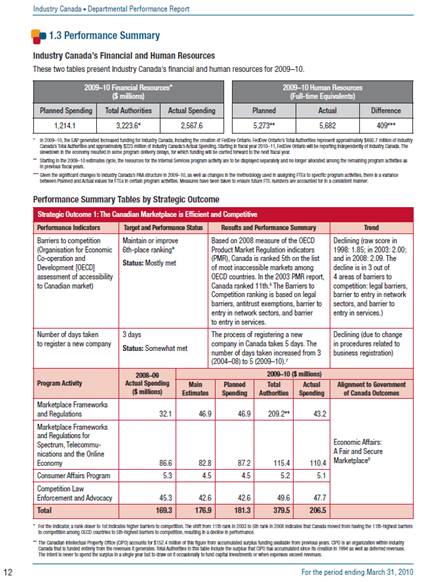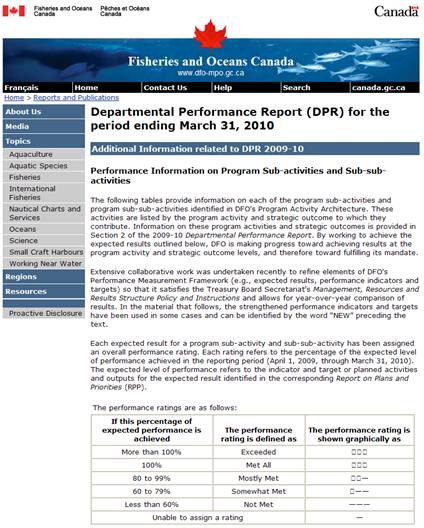Common menu bar links
Breadcrumb Trail
ARCHIVED - Performance Reporting: Good Practices Handbook 2011
 This page has been archived.
This page has been archived.
Archived Content
Information identified as archived on the Web is for reference, research or recordkeeping purposes. It has not been altered or updated after the date of archiving. Web pages that are archived on the Web are not subject to the Government of Canada Web Standards. As per the Communications Policy of the Government of Canada, you can request alternate formats on the "Contact Us" page.
Use comparisons and trends
Comparisons of performance by similar organizations or between jurisdictions add credibility to performance data collected by the department. Use of comparisons can help readers better understand achievements and shortcomings in performance. The comparisons chosen should be relevant and informative. For example, they might include the following:
- Comparisons of the same organization between years and over time (trend information);
- Progress made at the program activity level as compared with changes at the strategic outcome level;
- Indicators (e.g., prenatal health practices versus infant mortality rate); and
- Actual performance against baseline information, targets, service standards, and benchmarks.
Good practice: Use comparisons and trends.
Why is the following a good practice? Comparative information is consistently presented throughout the DPR to assess actual performance. In this example, comparative information is provided against indicators, including an assessment of trends.
Good practice example: Industry Canada DPR 2009–10

Provide links to further information
A results-focused style of reporting that explains the critical aspects of departmental planning and performance will provide parliamentarians with the information they require throughout the supply process. One way of achieving this concise style is to include electronic links in the report, which is an effective way of providing readers with additional information without adding unnecessary length. Supplying electronic links allows stakeholders who are interested in the finer details of the performance story to read the particulars.
Overall, an increased focus on a concise style of reporting will ensure that accountability and performance information is at the forefront of the DPR while improving the clarity and user-friendliness of the document.
Good practice: Provide links to further information.
Why is the following a good practice? The department directs readers to its website to allow readers to drill down to supplementary electronic data. This is a good example of the use of the Web layer to capture sub-program activity details.
Good practice example: Department of Fisheries and Oceans DPR 2009–10

